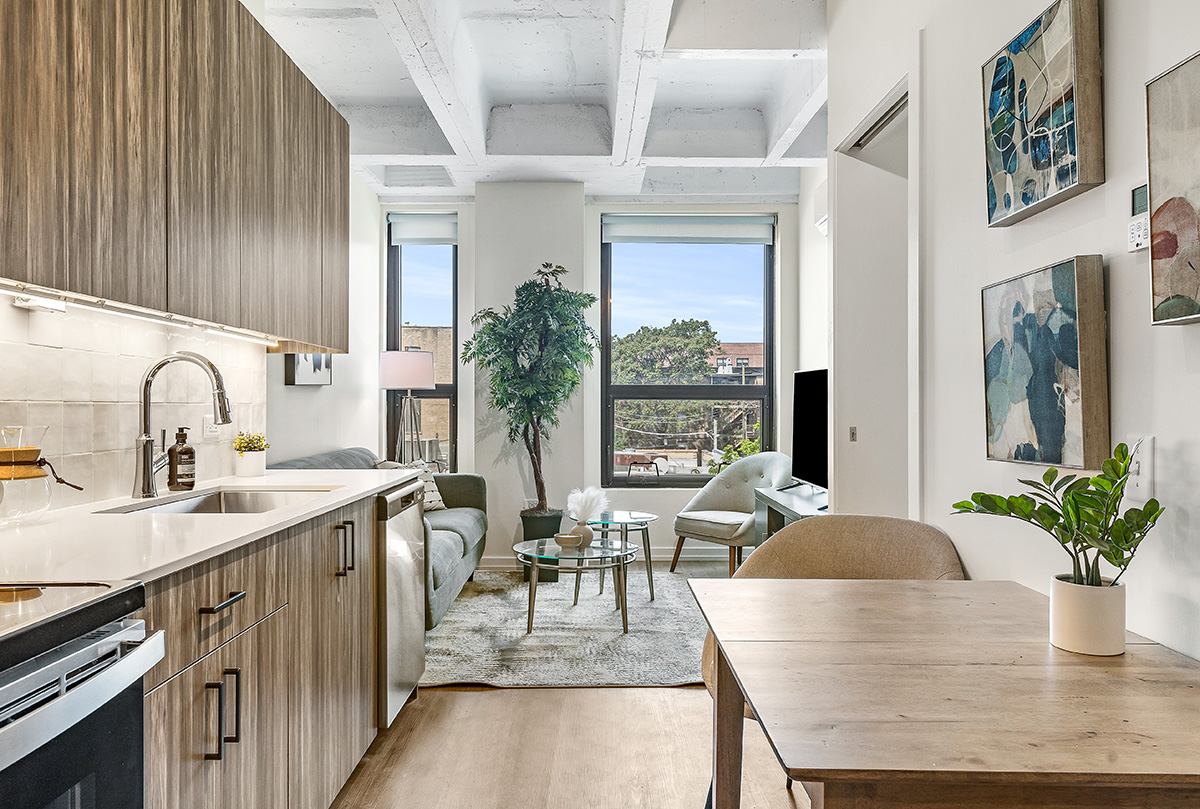
It's frustrating when prime real estate near Chicago's rail stations and lakefront is largely squandered on storing automobiles. So I was (cautiously) pleased this morning to see an article by Urbanize Chicago's Lukas Kugler about a nearly century-old, six story parking garage in East Lakeview that was recently converted into a 72-unit apartment building, now open for leasing.
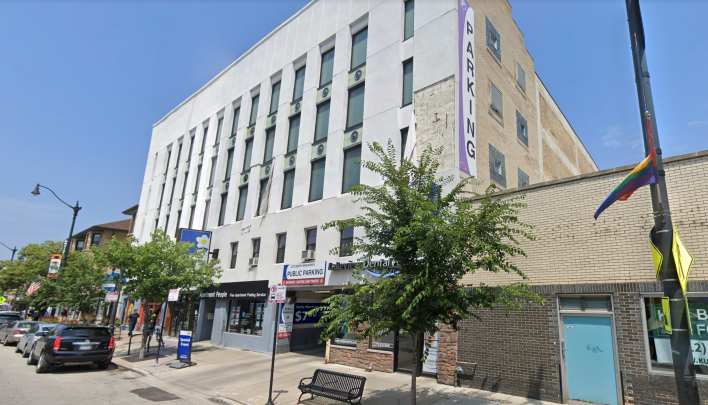
In retrospect, it's a bummer that the location of The Medallion complex, 3121 N. Broadway, was mostly occupied by public parking rather than housing for so long. (Its first floor did recently house a coffee shop, an eyewear store, an apartment finding service, and a dentist, most of which are still in business following the redevelopment.)
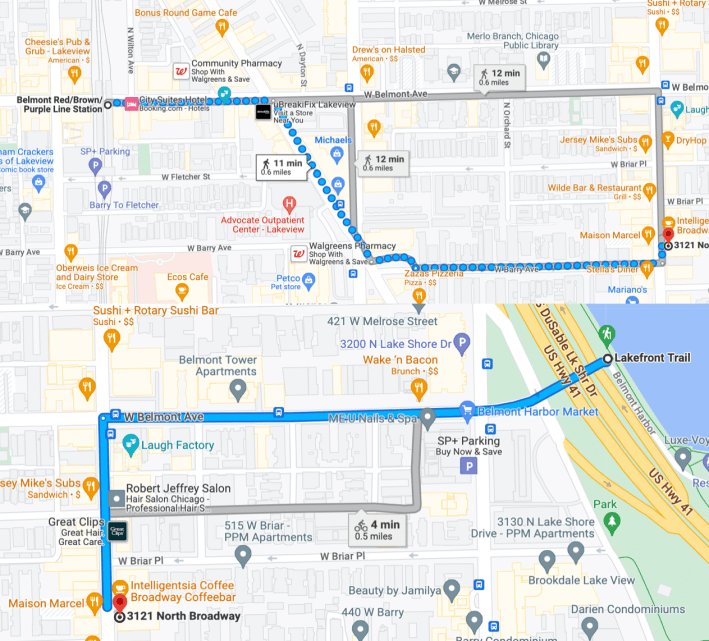
The building, developed by JSM Venture, is only 0.6 miles from the Belmont Red/Brown/Purple station. It also has easy access the #36 Broadway bus, as well as the #77, #151, and #156 CTA buses on Belmont. And it's only a half mile from the Lakefront Trail.
The Medallion is also a short walk from many grocery stores, bookshops, theaters, and eating and drinking establishments. It's only right that this property should be home to people who can benefit from these amenities, instead of mostly just storing motor vehicles.
Of course, there's the question of who can afford to live there. Apartments prices listed on the building's website range from $1,708 a month for a studio apartment, to $3,209 for a two bedroom unit.
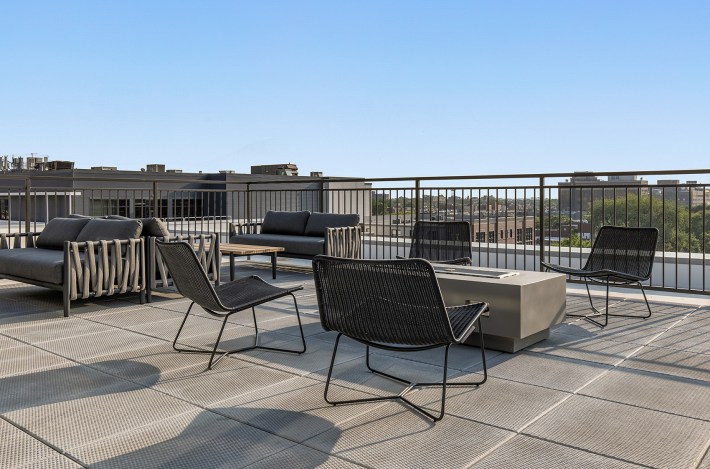
But the building also complies with Chicago's Affordable Requirements Ordinance. That legislation requires that residential developments with ten or more units "that receive City Council approval for an entitlement, a city land purchase or financial assistance" set aside a portion of the housing as affordable units. These are available to people making up to 60 percent of the Area Median Income, which currently translates to $46,380 for a single person, or $52,980 for two people. The Medallion offers seven onsite studio and one-bedroom ARO units, according to its website and its approved Planned Development documents.
The Medallion sits just inside the Belmont station's half-mile (as the crow flies) Transit Oriented Development zone radius. That basically abolishes the city's usual requirement for a 1:1 ratio of housing units to car parking spaces.
As it stands, The Medallion still has 52 car spaces for its 70 apartments, according to Christine Carr from Luxury Living Chicago, which is managing leasing. You have to pay another $300 a month if you want a car spot. Carr said the building also has two electric vehicle chargers and eight-to-ten bike parking spaces per floor.
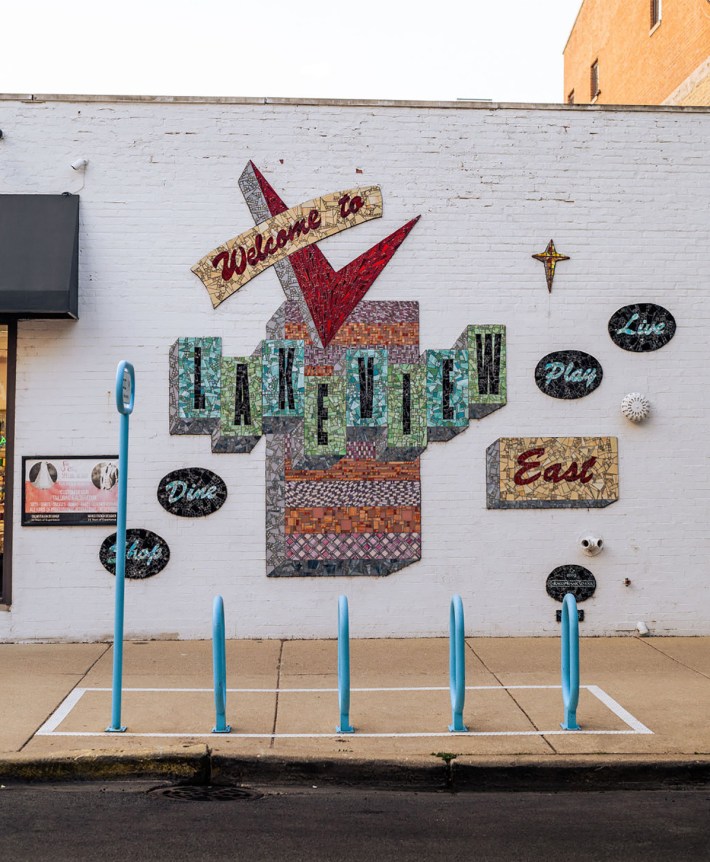
This all sounds reasonable to me. But Streetsblog Chicago's Steven Vance, our resident real estate expert, said it doesn't make sense to recommend that The Medallion's method become a widespread apartment creation strategy. "It's a one-off. Converting parking garages to housing is extremely rare here and anywhere in the US."
Steven pointed to a 2016 Wired article that noted the difficulties of this kind of construction. "You can't just throw down carpet and string up some lights to convert a space built for cars into one for humans, whether as housing, office space, or retail," author Aarian Marshall noted. He argued that architects should design today's parking structures with enough floor reinforcement, column spacing, ceiling height, and room for ductwork and electrical equipment, that they can be converted into places for people in the future.
Carr confirmed that overhauling The Medallion was no easy task. "There are challenges with any adaptive reuse project, because the building wasn't originally designed for that purpose. You have to provide water, toilets, and all that to each individual space."
However she argued, "Adaptive reuse is the wave of the future because we do have a national housing shortage, and there currently seems to be an endless supply of vacant office space," She added that developer JSM Venture "lucked out" because The Medallion's original building was structurally sound enough to add two additional floors on top.
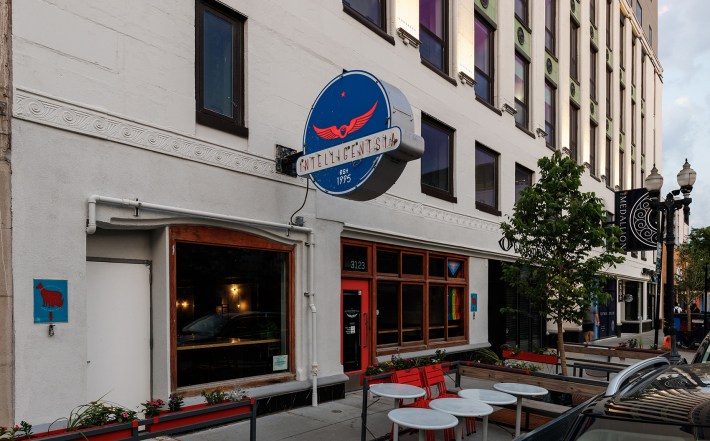
Carr said "It's also really cool" that The Medallion was able to save many of the old building's distinctive 1920s architectural embellishments. "It was a way to preserve the facade of a beautiful building and maintain the integrity of the neighborhood at the same time."
But she acknowledged, "Adaptive reuse is definitely not for the faint of heart."
Read more about The Medallion on its website. Also see coverage on the Urbanize, WBEZ, and Crain's sites.

Did you appreciate this post? Please consider making a tax-deductible donation.
